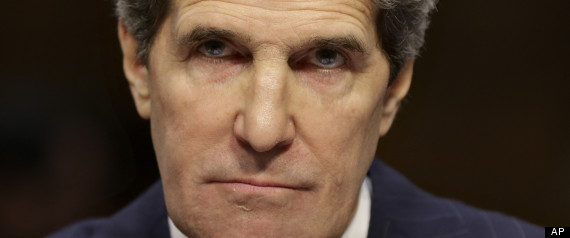
A few weeks before he presents his peace plan, the U.S. secretary of state has become a thorn in the side of the Israeli right. John Kerry had the audacity to mention the risk of boycott that Israel faces if it refuses his proposals.
The allusion to Israel’s growing isolation in the world touched a nerve, as Netanyahu’s government is already worried that the American diplomat is calling for a campaign to “delegitimize” the Israeli state. Over the past few weeks, the movement has grown at an alarming rate, sparking discussion like never before.
Actress Scarlett Johansson had to break her contract with the NGO Oxfam because she is representing a company based in a West Bank settlement. Dutch pension fund manager PGGM had to stop investment in five Israeli banks with locations in the same settlement. In the U.S., the American Studies Association has declared an academic boycott of Israel. The EU applied “guidelines” that prohibit cooperation with Israeli institutions and businesses in occupied territories.
International campaign organization BDS — Boycott, Divestment, Sanctions — has significant resources and targets the Israeli government’s colonization policy in the occupied territories. The trend of equating such measures with anti-Semitism has lost much of its deterrent power.
This phenomenon illustrates the rise of NGOs in the battle for world public opinion and their growing ability to impose their own agenda on state diplomats. It parallels another development, somewhat in the opposite direction, but equally worrying for Israel: the declining influence of Jewish community institutions in the United States.
Despite a campaign aimed at American senators, the powerful AIPAC lobby recently failed to pass new sanctions against Iran that could thwart the ongoing negotiations. Over time, Israeli leaders have become worried that Jewish-American voters are distancing themselves from the Jewish state and its policy choices. The rise of a competing organization, J Street, which favors compromise on the Palestinian issue, is contributing to the dilution of the Israeli right’s impact on Congress and the White House.
At this crucial moment, marked by general instability in the Middle East and the prospect of reintegrating Iran into the regional order, Israel finds itself confronted with a “soft power” problem. It lacks the ability to influence nonmilitary decisions — an ability that is increasingly necessary these days. For a country that has long been reassured by the “iron wall” doctrine, based on the overwhelming superiority of its armed forces, it now must urgently confront a different kind of strategic challenge.
Operation Cast Lead in Gaza in December 2008 sounded the first alarm. The Israel Defense Forces won a beautifully decisive victory on the ground by damaging the ability of radical Islamist groups to fire rockets on Israel. Yet the cost, in terms of diplomacy and public image presented to the world, was disastrous. The split with Turkey, a key regional ally for Israel, dates from this time. Israel’s demonstrated ability to protect its borders has not been surpassed. However, in the 21st century, being the strongest is no longer sufficient to win the day.
Kerry knows Netanyahu is not enthusiastic about making concessions on the Palestinian issue. Why take risks when Iran remains a threat, and when the stability of Egypt and Jordan, the two Arab countries with whom peace treaties have been signed, is also fragile? The U.S. secretary of state, whose tenacity is described as “Messianic” in Jerusalem, is working on another angle, playing up the cost of isolation that Israel must endure if it refuses to try something new. The very sharp Israeli reactions show that Kerry’s argument carries some weight.

Leave a Reply
You must be logged in to post a comment.